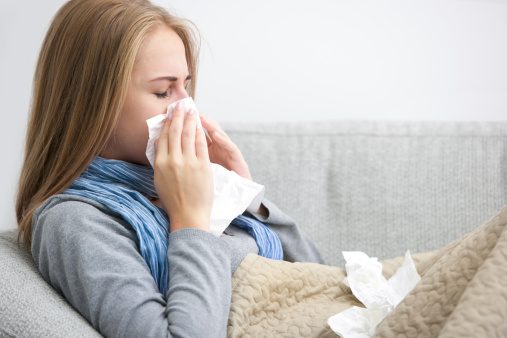
Hibernating
Colds run rampant in the winter because we spend more time in cramped quarters – buses, classrooms, hockey change rooms, couches and ski chalets – and less time outside. Viruses pass from our hands to others, and via the air after a sneeze or a cough. It’s not always easy when the weather’s really crisp, but cold prevention can be as easy as choosing to go on a walk instead of going to a movie theatre. When you can’t avoid close quarters, give those hands a good wash with soap and water. Also, some studies indicate that humidity and the rhinovirus don’t get along, so using a humidifier might help fend off colds.
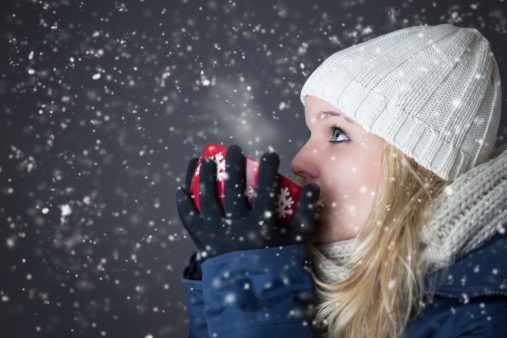
Overdressing
Catching a chill after a long day out in the low temperatures does not lead to a cold – colds are caused by viruses. Caveat: If you have gotten really cold it can depress your immune system and if you’re exposed to a cold virus at this time, you might catch it more easily. When going outside this time of year, dress in layers, choosing natural fabrics or those designed for athletic use, to keep yourself comfortable, warm and dry. This will not only help prevent a cold, but you’re likely to stay outside longer getting exercise (which is great for your immune system) and enjoying fresh outdoor air where viruses struggle to spread.
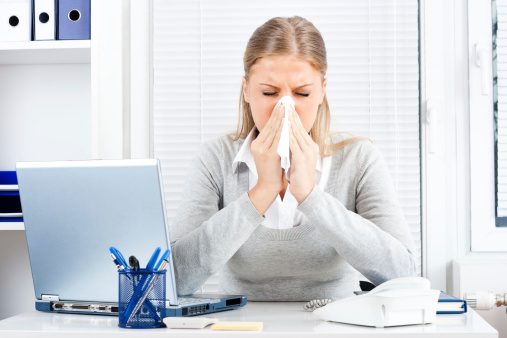
Sneezing and coughing wrong
Let’s be clear: it’s fine to sneeze and cough, and a normal part of life. But sneezing or coughing into your hands sets you up for passing viruses on to others. Kids in school are now taught to use the crook of their elbow. It’s not quite caught on among the adult set, but it really works to help contain the cold virus and keep hands a bit cleaner as they touch surfaces, others, food and more. Extra tip: avoid touching your face too frequently, as that’s an effective way to get a virus from your hands into your body via proximity to your mouth and nose.

Relying only on vitamin C
Your mom might have offered you orange juice at the first sign of a cold back in the day, but the data on vitamin C is not conclusive. Dr. Borins says there’s good research showing that Echinacea and zinc lozenges may shorten the duration of a cold if you take them at the first signs. Caveat: Don’t take them just once! For instance, you need Echinacea tincture every few hours for it to work.
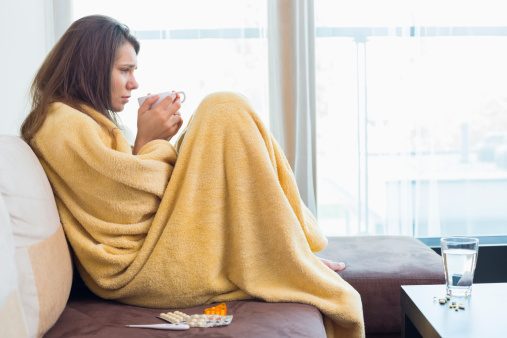
Not quarantining
When someone in the house already has a cold, we often forget part of the job – besides getting them well – is containing the virus. “Handwashing is important. So is isolating their towel and washcloth and not sharing cutlery or glasses,” says Dr. Borins. It’s a drag, particularly on top of caregiving, but there needs to be extra washing of linens, surfaces and hands. Keeping a sick person home from work or school goes without saying; in fact, at the very first signs of illness, a patient-to-be should head home.
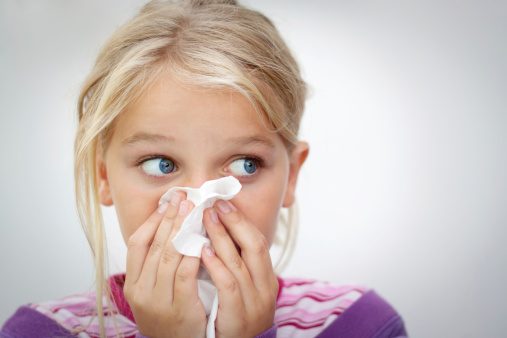
Not getting enough vitamin D
We get vitamin D from the sun, but in Canada during the winter you won’t be able to pick up enough vitamin D to maintain healthy levels, no matter how much you go outside. And low vitamin D has been shown to impact our immune systems and make us susceptible to colds. “There’s evidence that people who live in nursing homes givien vitamin D are less susceptible to flu outbreaks,” says Dr. Borins. Adults should take 400 to 1,000 IU a day in a supplement pill or drops to impact health overall, including your bones, long-term risk for serious illnesses such as cancer, and short-term health of your immune system to fend off colds and flues. If you head south every winter, that’s great for your vitamin D levels – but you may still need a supplement, too.
Related:
• 5 flu-fighting foods
• 4 foods to beat cold and flu symptoms
• Do you have a cold or flu?
